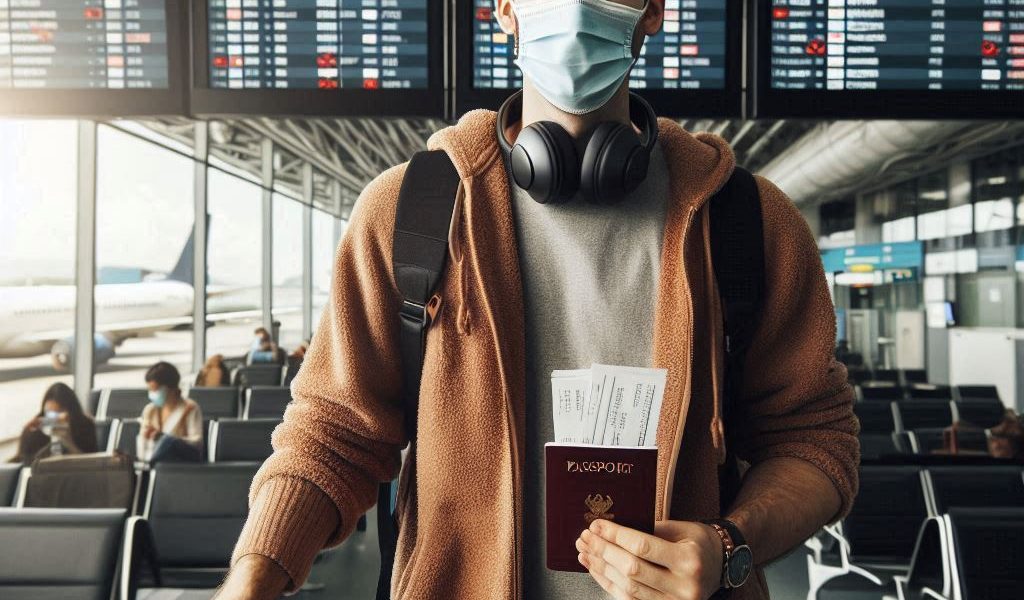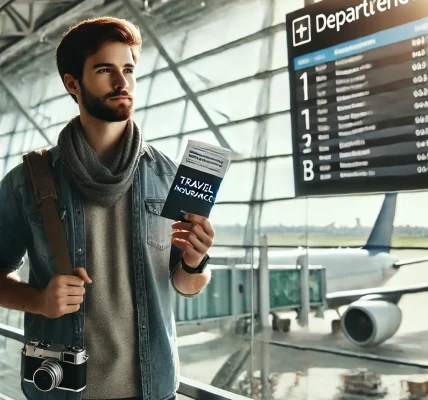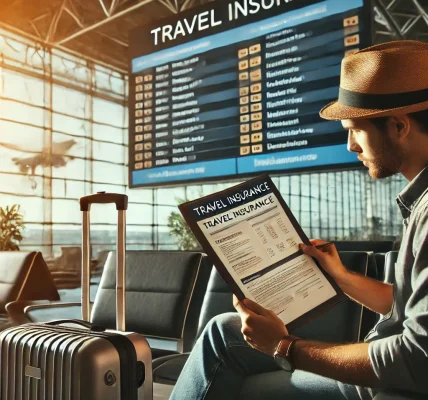Introduction
The COVID-19 pandemic drastically changed the travel industry, impacting everything from airline policies to hotel operations. One of the most significant changes has been in the realm of travel insurance. As travelers adapt to the new normal, understanding how COVID-19 affects travel insurance coverage is crucial for making informed decisions and ensuring a hassle-free journey.
In this guide, we will explore the key changes in travel insurance since COVID-19, the types of coverage available, what travelers should look for in a policy, and how to file claims related to COVID-19 disruptions.
How COVID-19 Changed Travel Insurance
Before the pandemic, travel insurance policies typically covered trip cancellations, medical emergencies, and lost or stolen belongings. However, COVID-19 introduced a new set of challenges, leading insurers to modify their policies. Some of the most notable changes include:
1. Inclusion of Pandemic-Related Coverage
- Many travel insurance providers now offer coverage for COVID-19-related illnesses, including hospitalization and treatment abroad.
- Some policies also cover trip cancellations if a traveler contracts COVID-19 before departure.
- Quarantine costs due to a positive test during travel are included in select policies.
2. Flexible Trip Cancellation and Interruption Policies
- Travelers can now purchase insurance that covers cancellations due to government-imposed lockdowns or border closures.
- Policies may provide reimbursement if a traveler tests positive before departure and needs to postpone or cancel their trip.
3. COVID-19 Testing and Quarantine Coverage
- Some insurance plans include reimbursement for mandatory COVID-19 tests required for travel.
- If a traveler is forced to quarantine at their destination, select policies cover additional accommodation and meal expenses.
4. “Cancel for Any Reason” (CFAR) Upgrades
- Standard travel insurance often does not cover fear of travel due to COVID-19, but CFAR policies allow travelers to cancel for personal reasons, including pandemic-related concerns.
- CFAR coverage typically reimburses up to 75% of prepaid expenses.
5. Coverage for Medical Evacuations Due to COVID-19
- Some policies now include emergency evacuation coverage for travelers who need to return home due to COVID-19 complications.
- In extreme cases, medical repatriation is covered if local healthcare facilities are overwhelmed.
What to Look for in a COVID-19 Travel Insurance Policy
Given the complexities of traveling during a pandemic, choosing the right travel insurance policy is essential. Here are the key aspects to consider:
1. Trip Cancellation and Interruption Coverage
- Ensure your policy explicitly covers COVID-19-related cancellations, including illness, quarantine, and government restrictions.
- Read the fine print to confirm the reasons for cancellation that qualify for reimbursement.
2. Emergency Medical and Hospitalization Coverage
- Opt for policies with at least $100,000 in medical coverage, including treatment for COVID-19.
- Check whether hospitalization, doctor visits, and medication costs are covered.
3. Quarantine and Additional Expenses Coverage
- Some policies cover unexpected quarantine costs, including hotel stays and food expenses.
- Verify the daily allowance and maximum coverage duration.
4. COVID-19 Testing and Travel Requirement Coverage
- Policies may reimburse costs for mandatory testing before departure or upon arrival.
- Check if expenses related to additional tests due to positive results are included.
5. Emergency Evacuation and Repatriation Coverage
- Confirm that your plan covers transportation back home in case of severe illness.
- Some insurers provide air ambulance services if necessary.
6. 24/7 Assistance Services
- Access to round-the-clock support for medical emergencies, travel disruptions, and policy guidance.
- Some plans offer multilingual support for travelers abroad.
How to File a Travel Insurance Claim for COVID-19
If you need to file a claim for COVID-19-related disruptions, follow these steps for a smooth process:
1. Notify Your Insurance Provider Immediately
- If you test positive or experience a travel disruption, inform your insurance company as soon as possible.
- Many insurers require prompt reporting to validate claims.
2. Gather Supporting Documents
- Keep records of COVID-19 test results, hospital invoices, and government-imposed quarantine orders.
- Obtain written documentation from airlines or hotels confirming cancellations or delays.
3. Submit Your Claim Online or via Mail
- Most insurers offer online portals for claim submissions.
- Ensure all required documents are included to prevent delays.
4. Follow Up on Your Claim
- Insurance claims can take time to process, so regularly check for updates.
- If necessary, contact customer support to expedite resolution.
Tips for Traveling Safely During COVID-19
Even with travel insurance, taking extra precautions can help minimize risks:
- Stay updated on travel advisories for your destination.
- Carry digital and physical copies of important documents, including your insurance policy and COVID-19 test results.
- Follow local health guidelines, such as mask mandates and social distancing.
- Consider booking refundable tickets and accommodations for flexibility.
- Choose airlines and hotels with COVID-19 safety protocols.
Conclusion
COVID-19 has reshaped the way we approach travel insurance, making comprehensive coverage more important than ever. Understanding policy changes and selecting the right insurance plan can protect you from unexpected expenses and disruptions.
Before your next trip, compare insurance options, read the fine print, and ensure you have coverage for medical emergencies, trip cancellations, and quarantine expenses. With the right travel insurance, you can explore the world with greater peace of mind, knowing you are financially protected against pandemic-related uncertainties.




